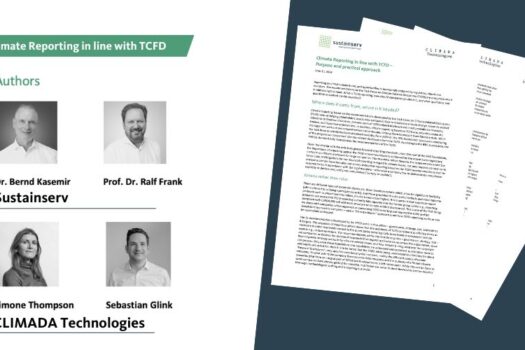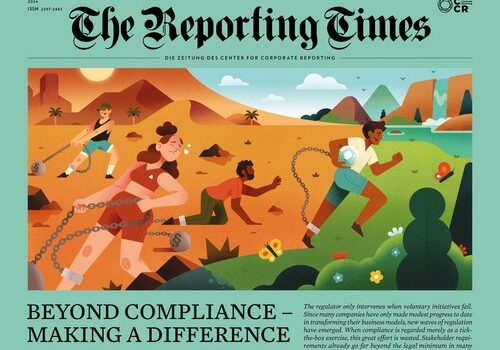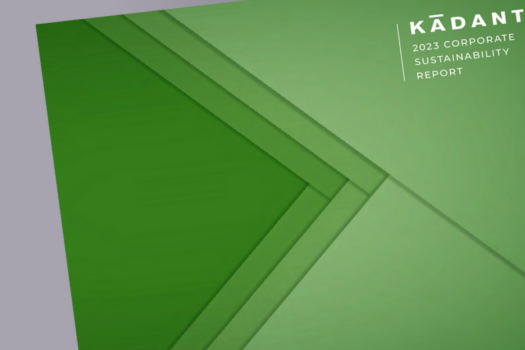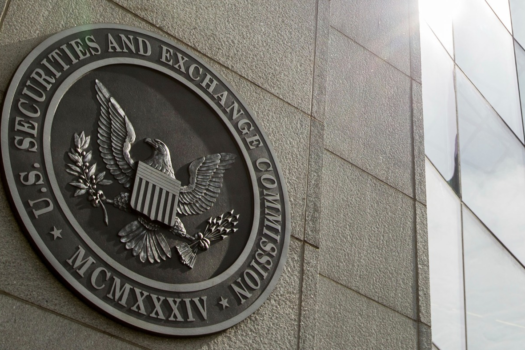For 232-year-old cotton merchant Paul Reinhart AG, development and communication of its sustainability objectives and efforts is an ongoing journey. In the last year, Reinhart started the extensive work of translating the rich and varied experience of implicit knowledge into measurable targets. Stimulated by increasing requests for sustainability performance and transparency from various global partners, Reinhart invested a significant effort to build a robust management and disclosure process, beginning with preparing to qualify for sustainability-linked loans.
Starting with a long history marked by sustainability milestones
Founded in 1788, Paul Reinhart AG (Reinhart) is now in its 8th generation as a family company. Reinhart is headquartered in Winterthur, Switzerland, and has subsidiaries in Australia, China, Egypt, Greece, India, Ivory Coast, United Arab Emirates and the United States, with minority ownership of cotton gins in Burkina Faso, Ivory Coast, Tanzania, Zambia and Zimbabwe.
Reinhart maintains long-term relationships with its suppliers and had already started sourcing and marketing organic cotton at the end of the last century in collaboration with civil society organizations. Today, the company is one of the world’s largest merchants of organic and fair-trade cotton and a significant pioneer and player in the global sustainable cotton market.
In 2012, Reinhart began partnering with Cotton made in Africa (CmiA), an internationally recognized standard and certification label for sustainable African cotton, and the Aid by Trade Foundation. In the same year, the company joined the Textile Exchange, a nonprofit that supports textile companies seeking greater sustainability.
Reinhart joined the Better Cotton Initiative (BCI) in 2013 that was initially founded by large retailers and non-governmental organizations. It has become the largest sustainable cotton initiative targeting the entire cotton value chain. Lately, Reinhart was a founding member of the African Cotton Foundation, a nonprofit dedicated to creating an economically, environmentally and socially sustainable cotton sector.


Reinhart offers organic and fair-trade cotton to the market since 2004 and supports cooperatives through pre-financing during the harvest and providing market information.
Finance presented an opportunity
Cotton merchants secure the timely payment to suppliers before shipment and accept the terms of customers who want to pay only once goods are shipped against documents. Bridging this gap on large volumes of agricultural commodities requires substantial bank credits. The banks therefore ensure that the business is in accordance with their concrete sustainability compliance requirements.
As stakeholder expectations regarding sustainability continue to expand, there is an emerging surge in interest and awareness from the financial sector especially. Through sustainability-linked loans (SLLs), borrowers are given an incentive to formulate sustainability targets and report on progress.
When Reinhart decided to review its sustainability efforts for compliance with an SLL in 2019, company leadership knew that its existing profile positioned it well to qualify. But it also recognized the special opportunity for a much larger expansion of its sustainability management and reporting process and hired global management consulting firm Sustainserv to help guide and facilitate.


Mining implicit knowledge with a materiality assessment
Reinhart’s collaboration with Sustainserv began with a structured materiality assessment to identify the economic, environmental and social issues most relevant to Reinhart’s stakeholders and business. Reinhart decided to use the framework provided by the GRI (formerly Global Reporting Initiative) for the assessment, to focus the company’s sustainability management and disclosure on the issues where the company can make the biggest difference.
The materiality assessment was accomplished through guided workshops with Sustainserv, with the goal of valorizing the implicit knowledge of Reinhart managers on what is most important to the company’s business, where Reinhart has the most significant impact and what its stakeholders most often inquire about. Reinhart also conducted a stakeholder engagement workshop with the Swiss Federal Department of Foreign Affairs and the Institute for Human Rights and Business to address the material topics with highest relevance, namely “Labor and Human Rights” and “Supplier Assessment and Policies.”
The materiality assessment involved three basic steps:
- Identifying all potentially material topics, followed by categorizing and condensing into a short list
- Prioritizing, assessing and evaluating short list topics along three dimensions: Relevance for Reinhart’s long-term business success, relevance for stakeholder decision-making and behavior as well as impact on sustainability along the value chain
- Visualizing and validating the results regarding plausibility, using a matrix (below)

A structured materiality assessment helps companies understand which economic, environmental and social issues are most relevant for company stakeholders, impacts and the issues that drive long-term value creation. It forms the foundation for a sustainable business strategy, reveals which KPIs to track and facilitates alignment with reporting standards.
Following the materiality assessment, Sustainserv helped Reinhart produce a series of documents, including an updated internal Code of Conduct, a Supplier Code of Conduct and a Corporate Responsibility Handbook. Management and Board of Directors of Reinhart discussed those documents and approved them fully.
Achieving an SLL by setting measurable targets
After working with Sustainserv, Reinhart used its newly crafted suite of materials to develop Key Performance Indicators (KPIs) and Sustainability Performance Targets (SPTs) to establish and track sustainability improvement for Reinhart’s banking partners regarding SLLs. Reinhart drafted these KPIs and SPTs based on the Sustainability Linked Loan Principles (SLLP) published by the Loan Market Association that specify that “the SPTs should be ambitious and meaningful to the borrower’s business and should be tied to a sustainability improvement in relation to a predetermined performance target benchmark.” In Reinhart’s case a discount is awarded based on the fulfillment of these goals, which indicate expected performance on the roll-out of and training on the updated Code of Conduct; the implementation of the Supplier Code of Conduct; the proportion of certified cotton traded; and levels of support for education initiatives of local communities in Sub-Saharan Africa.
Reinhart asked Sustainserv, which had not been involved in the KPI and SPT determination and did thus not have any conflict of interest, to review and independently verify the KPIs and SPTs and confirm their appropriateness (ambitious and within scope) for the purpose of target setting under the SLLP. To evaluate the SPTs, Sustainserv compared Reinhart’s proposals for the SLL KPIs with corresponding metrics and targets included in the Sustainability Accounting Standards Board (SASB) Agricultural Products standard and publicly communicated by selected peers and competitors. The evaluation also concluded that the KPI’s and SPT’s proposed by Reinhart align well with the topics that the materiality assessment found to be of the highest relevance for the company’s impacts on sustainable development.

The structured approach outlined above helped Reinhart to achieve an SLL with clear sustainability targets over the next four years (2020-2023). The targets will be audited independently every year starting at the end of 2020. Reinhart will continue receive SLL approval as long as it meets the SPTs as outlined in its SLL documentation.
“The collaboration with Sustainserv advanced our transformation of implicit sustainability knowledge into measurable targets faster than we expected and helped us to even achieve a Sustainability-Linked Loan. The next challenge in our sustainability journey is to enlarge the commitment for measurable targets with all global operations of the Reinhart group.”
Jürg Reinhart, CEO, Paul Reinhart AG
Reaping multiple harvests from one investment
Reinhart’s work in the last year has made it easier to structure its comprehensive corporate responsibility approach and performance and to credibly respond to various stakeholder requests for transparency, including application for and successful closing of an SLL agreement with a consortium of international banks. Engaging for comprehensive non-financial sustainability reporting turns out to be just one of many valuable outcomes of the process:
- The company’s 150 global employees share a common understanding about what corporate responsibility means for Reinhart, due to training on the new Corporate Responsibility Handbook and the updated internal Code of Conduct.
- Reinhart introduced suppliers to its sustainability expectations as outlined in the Supplier Code of Conduct.
- Reinhart formed an internal Human Rights Due Diligence working group based on input from a high-level expert panel, including recommendations from the United Nations Office of the High Commissioner for Human Rights.
- Reinhart is prepared to meet fully the standards of corporate responsibility reporting, as required by the Parliamentary counter proposal to the Responsible Business Initiative (RBI).
- Reinhart is equipped to provide on-demand sustainability disclosure to business partners.
- The creation of Reinhart Sustainable Impact enables a strategic direction that centers around full compliance with lenders, stakeholder engagement and long-term investments in the value chain.
- Reinhart has the tools and process to begin issuing formal sustainability reports, the first of which is expected to be published in 2021. Reinhart also will deliver dynamic reporting throughout the year on the four audited KPIs and further selected material topics.
Beginning a new chapter
For Reinhart, the decision to work toward a better reporting mechanism has led to stronger and more widespread sustainability targets. In the course of laying the groundwork for SLLs, Reinhart leveraged its significant investment to improve the company’s sustainability profile with multiple deliverables.
Within one year, this focused sustainability initiative has enhanced Reinhart’s culture of responsible business practices with structured and well-defined modern sustainability objectives and related capabilities. This is not the end but rather the start of a new chapter of Reinhart’s ambitious journey toward enhanced sustainability including effective disclosure to and dialogue with its stakeholders.
Download
About the authors:
Dr. Philippe Saner is part of Reinhart’s Sustainability Team and drives the corporate responsibility strategy. His work currently focuses on dynamic reporting and to support the corporate digital transformation. Contact: [email protected]
Dr. Bernd Kasemir has been helping companies develop strategies, measure performance, and report on sustainable value creation since co-founding Sustainserv in 2001. He worked at Sustainserv’s US office in Boston for 17 years, before relocating to Sustainers Zurich in 2017.
Contact: [email protected]
Copyright
- Figure 1, 2: © Martin J. Kielmann for CmiA (Tanzania, 2019)
- Figure 3, 4: © Lorenz Reinhart (Brazil, 2016)
- Figure 5, 6: © Reinhart / Sustainserv (Switzerland, 2020)
Quotation permitted provided the source is cited: Philippe Saner and Bernd Kasemir, Reinhart’s sustainability journey: Transforming implicit knowledge into measurable targets, 2020, © Paul Reinhart AG and Sustainserv GmbH
Get in touch. We are happy to tell you more about it.






